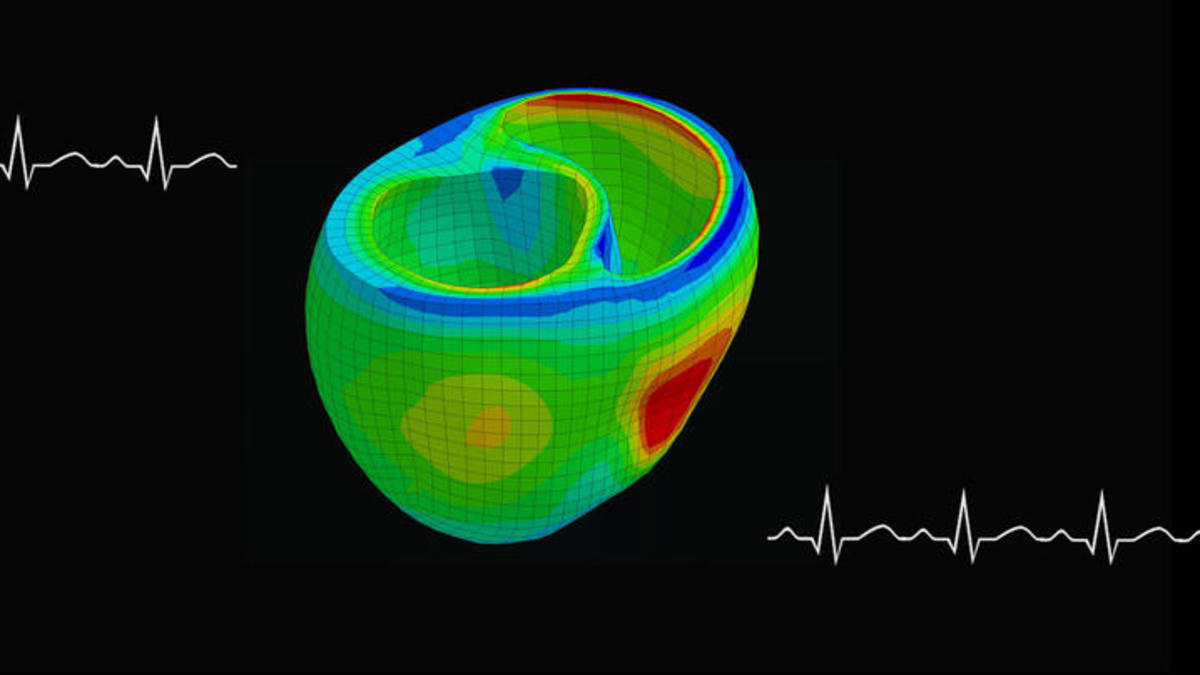Picture this: you're battling heart failure and meeting with your doctor to discuss treatment. Before prescribing anything, the doctor pulls up a virtual model of your heart on her computer and "treats" it with several drugs. A few moments later, she can see how your heart is doing five years down the road.
Your doctor chooses the treatment with the best long-term outcome, and you live a longer and healthier life.
Two University of Kentucky researchers are working to make this experience a reality for the 5.7 million adults in the U.S. with heart failure.
Combining physiology and engineering, UK's Kenneth Campbell and Jonathan Wenk are developing computer software to deliver better therapies for patients with life-threatening heart failure. The National Institutes of Health recently awarded the team a $3 million five-year grant to create a computer model of the heart that can be customized to individual patients and predict long-term results.
"If you gave a patient a drug, how would their heart beat in the next second? Folks are pretty good at predicting that, but we're trying to predict how their heart will grow over months and years after taking a pill or having a genetic mutation," said Campbell, associate professor of physiology and cardiovascular medicine.
The computer model would take MRI or genetic data of a patient and build a multiscale simulation of their heart, leading to more personalized treatment plans. The model could also serve as a screening tool for scientists and drug companies who are trying to develop new therapies.
"This model will have tremendous predictive power, meaning it will change and adapt in response to treatment or disease," said Wenk, an associate professor of mechanical engineering and Gill Professor in Engineering. "For doctors, this is another tool that could guide them in their decision process."
